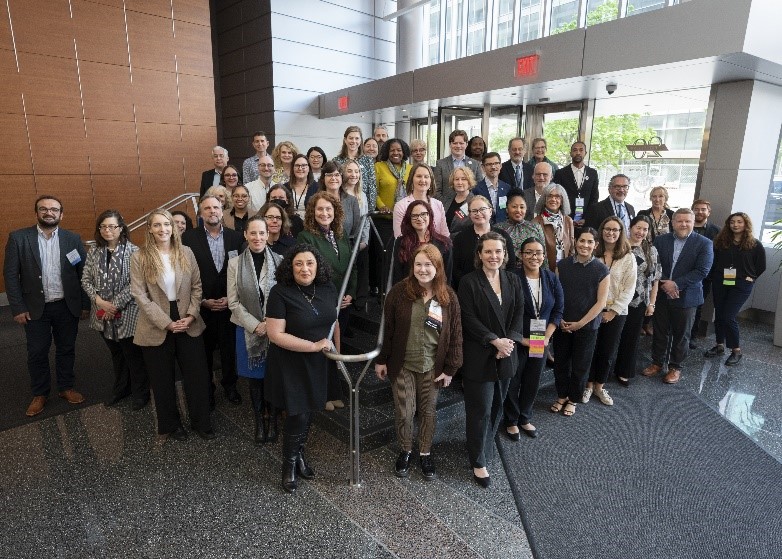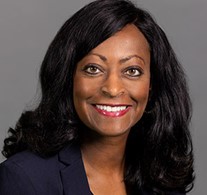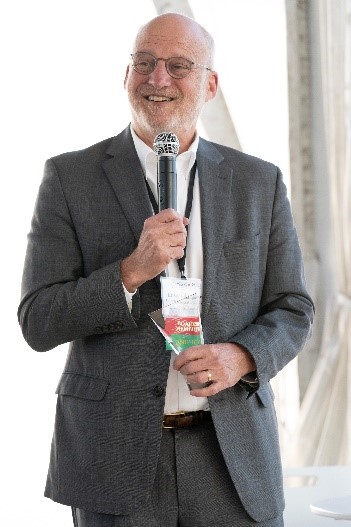Issue 9 (May 2)
House-Passed GOP Budget Would Decimate Science Funding
On April 26, the House passed along party lines the Limit, Save, Grow Act of 2023. The bill, which was developed by House Speaker Kevin McCarthy (R-CA) and other GOP members a week prior, represents the Republican’s opening bid in negotiations to raise the federal debt ceiling. Under the measure, the bill would suspend the federal debt limit until March 31, 2024, or until debt reaches $1.5 trillion, which ever comes first. However, as expected, the bill would demand steep cuts elsewhere in the budget to accommodate the increased borrowing authority. The White House and Congressional Democrats are seeking a “clean” debt limit bill with no strings attached.
Should the House-passed bill become law (which, to be clear, is not expected to happen in its current form as it would not pass the Democrat-controlled Senate), it would result in devastating cuts to discretionary programs across the federal government, including federal science agencies and other research activities. Most notable is the call to return discretionary funding in fiscal year (FY) 2024 to FY 2022 levels, which would translate to an immediate cut of more than $130 billion to discretionary funding below current (FY 2023) levels. Even more troubling, as Republican lawmakers are certain to protect and perhaps increase funding for defense accounts, the cut to nondefense discretionary funding would be disproportionately felt. The bill would also place caps on future discretionary spending, allowing growth by only one percent each year through FY 2033, and contains several additional policy provisions, such as repealing clean energy tax credits, canceling President Biden’s student debt relief program, and increasing work requirements for Medicaid recipients.

Nondefense discretionary spending is one of the smallest segments of the federal budget, representing only one-sixth of all federal spending, discretionary and mandatory. However, its reach is incredibly broad, including not only scientific research, but K-12 education and student financial aid programs, assistance for low-income families, infrastructure, law enforcement, health care for veterans, clean drinking water, international diplomacy efforts, public health, and small business initiatives, to name a few.
Now that the House has passed its bill—albeit along party lines—attention turns to the Senate and White House who will likely be forced to make some concessions in order to raise the debt ceiling before it is breached, which reports indicate could happen as early as June 1.
TAKE ACTION
Over the last few weeks, advocates have been busy calling on lawmakers to reject the draconian cuts proposed by House Republicans. One such opportunity is a sign-on letter being led by the Coalition for Health Funding. Organizational sign-on is sought and requested by Friday, May 5.
Social Scientists Take to Capitol Hill for Social Science Advocacy Day
On April 24-25, COSSA held its annual Social Science Advocacy Day events in Washington, DC. Over 50 social and behavioral science researchers, students, and advocates from 11 different states descended on Capitol Hill to discuss with Congress the importance of funding for federal agencies and programs that support social and behavioral science research. This was COSSA’s first in-person Social Science Advocacy Day since 2019.

Materials used to help articulate the value of social and behavioral science research are available on the COSSA website, including FY 2024 Appropriations Requests and new topical one-pagers.
To participate in social science advocacy from home, visit COSSA’s Take Action page.
COSSA is especially grateful to the sponsors of this year’s event. Thank you to all involved for making this such an impactful experience!
Take Action to Support Social Science Funding!
Social science is here to help! During COSSA’s 2023 Social Science Advocacy Day, advocates shared stories about ways social science is informing policy and improving lives. They did their part to secure robust funding for the federal agencies and programs critical to our sciences. Now it’s your turn.
Congressional appropriators are preparing legislation that will determine funding for federal science and data agencies for the next year. With some lawmakers discussing a return to FY 2022 funding levels (see related article), it is essential to fight for robust investments in social and behavioral science research and federal statistical agencies. Now is the time to write to your Members of Congress to urge their support for research funding in FY 2024!
COSSA has created a menu of letters for you to use in your outreach to lawmakers. Visit our TAKE ACTION page to send a letter to your Senators and Representatives and tell them why it is critical that they support funding in FY 2024 for the National Science Foundation, National Institutes of Health, Institute of Education Sciences, National Institute of Justice, and the federal statistical system.
Appropriators Hold Hearings on the President’s FY 2024 Funding Request for the NSF and NASA
Last month, the House and Senate Appropriations Committees held hearings to review the Biden Administration’s fiscal year (FY) 2024 proposed budget for the National Science Foundation (NSF). In addition to the NSF budget, the Senate Appropriations Committee also reviewed the budget request for National Aeronautics and Space Administration (NASA). Both hearings addressed the request of funding increases for the agencies while also highlighting the global competition challenges the US scientific enterprise is facing, specifically relating to China as they continue to heavily invest in research and development. NSF Director Sethuraman Panchanathan was the sole witness at the House hearing and was also a witness at the Senate hearing alongside NASA Administrator Bill Nelson.
The Senate Appropriations Subcommittee on Commerce, Justice, Science, and Related Agencies (CJS) held its hearing overseen by Subcommittee Chair Jeanne Shaheen (D-NH) and Ranking Member Jerry Moran (R-KS) on April 18. Both Shaheen and Moran spoke highly of recent achievements from both agencies, Chair Shaheen specifically called out NSF’s new Technology, Innovation, and Partnerships (TIP) directorate. Despite agreement from both sides that funding the work of NSF and NASA is important, members did raise the recent calls from House Republicans to cut the budget back to FY 2022 levels. Dr. Panchanathan stressed that global competition does not allow the US to slow down. With regard to the CHIPS and Science Act enacted last year, cuts would significantly impact workforce development and the creation of new jobs. Dr. Panchanathan also spent time discussing the importance of investing in AI and AI research, which NSF has committed to supporting. Dr. Panchanathan stated that investing in AI is investing in people and reiterated the NSF’s commitment to create and maintain strong partnerships, including with the growing AI Institutes and recently launched ExLENT initiative. The importance of bringing social, behavioral, and economic scientists into the equation was also highlighted, as well as a fusion of different directorates on AI activities more generally. Other topics discussed during the hearing were global scientific competitiveness, progress on upcoming NASA missions, NSF’s EPSCoR program, funding levels for historically Black colleges and universities (HBCUs), and agriculture/hydrology. The hearing recording is available on the Senate CJS Subcommittee website.
The House CJS Subcommittee held its hearing overseen by Subcommittee Chair Hal Rogers (R-KY) and Ranking Member Matt Cartwright (D-PA) on April 19. Like the Senate hearing, members of both parties seemed generally supportive of NSF and stressed the importance of global competition and equal opportunity to communities across the country- both rural and urban. Dr. Panchanathan cited his belief that innovation can be anywhere and opportunity should be everywhere. He highlighted the launch of the GRANTED program, which aims to enhance research and development on inequalities and support the administrative and infrastructure needs of under-resourced institutions, as well as the importance of meeting the goals of the EPSCoR program. Here too Dr. Panchanathan addressed the talk of budget cuts and noted that cuts would impact many areas of research, including AI and future quantum research, and offered to provide the committee with a comprehensive list of what would be impacted. Other issues discussed during the hearing were NSF’s priorities from the National Academy of Sciences Decadal Survey on Astronomy and Astrophysics 2020, workforce development for the semi-conductor network in partnership with leading universities, China’s current research capabilities, measuring success on grant programs, research efforts concerning the opioid epidemic, AI research limits, and the research security strategy and policy office at NSF. The hearing recording is available on the House CJS Subcommittee website.
House LHHS Subcommittee Holds Budget and Oversight Hearing on NIH, CDC, and ASPR
On April 19, the House Labor, Health and Human Services, Education (LHHS) Appropriations Subcommittee held a budget and oversight hearing on the National Institutes of Health (NIH), the Centers for Disease Control and Prevention (CDC), and the Administration for Strategic Preparedness and Response (ASPR) fiscal year (FY). Testifying about the Administration’s fiscal year (FY) 2024 budget requests for their respective agencies were Dr. Rochelle Walensky, Director of CDC; the Honorable Dawn O’Connell, Assistant Secretary for Preparedness and Response of ASPR; and Dr. Lawrence Tabak, Acting Director of NIH.
Chairman Robert B. Aderholt (R-AL) expressed concerns over the President’s budget request (see COSSA’s analysis), criticizing the inclusion of funds for climate change and gun research, and the sexual and gender minority office within the NIH (see previous COSSA coverage). Other Republican members voiced concerns about the origins of the coronavirus pandemic and protecting domestic research from foreign competitors. To this end, Dr. Tabak confirmed that while there is no research being conducted on the origins of the coronavirus, the NIH has experts in virus origins that can be called upon when necessary, and that the NIH is committed to protecting domestic research while promoting collaboration with international allies. Chairman Aderholt also expressed concerns about the projected flexibility of the new Advanced Research Projects Agency for Health (ARPA-H) while voicing support for the funding levels proposed.
Ranking Member Rosa DeLauro (D-CT) commended the Administrations’ funding proposal for its emphasis on modernization as well as its commitment to addressing health disparities. She expressed concerns about the GOP’s proposed budget cuts to health agencies, including the NIH, CDC, and ASPR, noting that the cuts would disproportionately impact elderly, veteran, and rural communities (see related article). Dr. Tabak cited that upwards of 5,000 research grants would be cut if the proposed cuts were made, likely decreasing the number of early career professionals interested in pursuing health research.
A recording of the hearing, along with the opening statements of the Assistant Secretary O’Connell, Dr. Tabak, Dr. Walensky, and Chairman Aderholt are available on the Appropriations Committee’s website. Ranking Member DeLauro’s opening statement is available on the Appropriations Committee Democrat’s website.
House Science Committee Holds Hearing on FY 2024 R&D Budget Request
On April 26, the House Committee on Science, Space, and Technology held a hearing to review the Administration’s fiscal year (FY) 2024 budget request for research and development (see COSSA’s analysis of the President’s budget request). Dr. Sethuraman Panchanathan, the Director of the National Science Foundation (NSF), and Dr. Dan Reed, the Chair of the National Science Board (NSB), testified before the Committee.
Chairman Frank Lucas (R-OK) and Ranking Member Zoe Lofgren (D-CA) commended the passage of the CHIPS and Science Act of 2022 and its prioritizing of scientific innovation, while also acknowledging that innovation strives on predictable and stable funding (see previous COSSA coverage). Some Committee members expressed concerns about the GOP’s proposed budget cuts resulting in the loss of the United States’ global scientific leadership, with Chairman Lucas adding that emerging technologies should be developed with “our values of transparency and fairness.” Dr. Panchanathan and Dr. Reed both confirmed that decreasing funding for the NSF at the proposed levels would result in such losses, with Dr. Reed adding that decreases would allow foreign competitors to surpass the U.S. in emerging areas such as artificial intelligence.
Representative Claudia Tenney (R-NY) voiced concerns about the focus on equity within the NSF budget; Dr. Panchanathan explained that equity allows equal opportunity for researchers to be examined based on merit.
A recording of the hearing, along with Dr. Panchanathan, Dr. Reed, and Chairman Lucas’ opening statements are available on the Science Committee’s website. Ranking Member Lofgren’s opening statement is available on the Science Committee Democrat’s website.
Biden Administration Releases Report on Mental Health Research
The Biden Administration, alongside the White House Office of Science and Technology Policy (OSTP) and the Domestic Policy Council (DPC), released a report on Mental Health Research Priorities. The blueprint follows the Administration’s Strategy to Address Our National Mental Health Crisis within the Unity Agenda released in March of last year, and received funding through the Bipartisan Safer Communities Act of 2022. Among the priorities are: advancing mental health intervention and treatment through improving digital intervention and treatment methods; improving treatment for serious mental illness; preventing suicide; and expanding the mental health workforce while providing improved support. The report also details the importance of equity research regarding mental health and improving the accessibility of intervention and treatment for mental illness. Additionally, the Administration is focused on the intersection of substance abuse and mental illness.
Noting the unprecedented mental health crisis in the United States, the Biden Administration is seeking to understand ways to increase intervention and treatment in an equitable and accessible way, particularly for younger generations. Through prioritizing these research areas, the Administration expects to establish communication and coordination across multiple agencies to improve how the nation addresses the mental health crisis.
OSTP is requesting that organizations email brainhealth@ostp.eop.gov with new actions or collaborations they plan to take to support the report or mental health. Submissions of 500 words or less are requested by May 31.
Remembering Dr. Kellina Craig-Henderson

The social, behavioral, and economic sciences lost one of their own on April 21 with the passing of Dr. Kellina (Kelli) Craig-Henderson. Dr. Craig-Henderson most recently served as Assistant Director for the Social, Behavioral, and Economic Sciences Directorate at the National Science Foundation (NSF), a post to which she was named in June 2022. Prior to that she served as Acting Assistant Director and Deputy Assistant Director in SBE, as well as various other roles during her 17 years at the agency.
“Kelli will be remembered for her passionate promotion of the social and behavioral sciences and as a scholar and champion for broadening participation of underrepresented groups in science,” said COSSA Executive Director Wendy Naus. “It has been an honor knowing her and having the opportunity to work with her over the years.”
NASEM releases Behavioral Economics: Policy Impact and Future Directions Report
The Board on Behavioral, Cognitive, and Sensory Sciences (BBCSS) of the National Academies of Sciences, Engineering, and Medicine (NASEM) has released a new report titled Behavioral Economics: Policy Impact and Future Directions. As a field developing strongly since the mid-20th century, behavioral economics has produced influential research from its findings between economists and psychologists. In this report, the contributions and impacts of the field are assessed across seven public policy fields: health, retirement benefits, climate change, social safety net benefits, climate change, education, and criminal justice.
In addition to discussing the application of behavioral economics into governmental outputs, the report addresses ways to build on the field’s accomplishments looking toward the future.
You can access and read the report here.
COSSA Presents 2023 Distinguished Service Award to American Anthropological Association’s Edward Liebow
COSSA has announced the recognition of Edward Liebow, Executive Director of the American Anthropological Association (AAA) and former Chair of COSSA’s Board of Directors, as the recipient of its 2023 Distinguished Service Award. The award was officially presented in Washington, DC at the Celebration of Social Science Reception on April 24, 2023 as part of COSSA’s 2023 Social Science Advocacy Day activities. More information about the award is available on the COSSA website.

“Ed has dedicated his career to the advancement of the social and behavioral sciences,” says Wendy Naus, COSSA’s Executive Director. “Not only is he a respected scholar in his own right, but Ed continues to give of himself on behalf of the entire social and behavioral science community. I, COSSA, and the research community writ large owe a debt of gratitude to Ed for his leadership, guidance, and friendship.”
Liebow is a cultural anthropologist who has served as AAA’s Executive Director since 2013 following an accomplished career with the Battelle Seattle Research Center conducting research and policy analysis on a variety of issues affecting disadvantaged communities. He was elected Chair of COSSA’s Board of Directors in 2019 and served two full terms in the role, which included stewarding the organization through the COVID-19 pandemic. He also serves on the board of the National Humanities Alliance. In 2020, Liebow was selected as a AAAS Fellow for “distinguished contributions to the field of applied anthropology, and particularly for exemplary administration of professional societies and nonprofit research and policy institutions.” Liebow is a longtime affiliate of the University of Washington and received a Ph.D. and M.A. from Arizona State University and B.A. from Carleton College.
The full press release can be found here.

